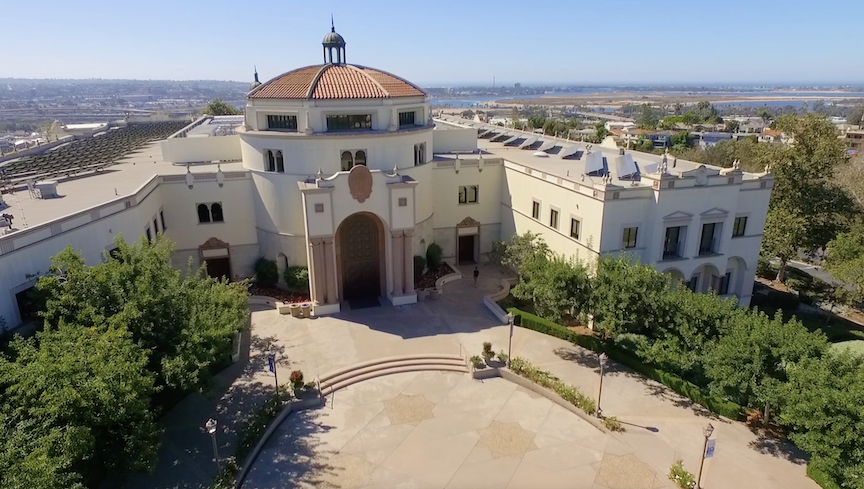USD's VIP Lab Documents Scope, Impact of Threats and Harassment Against Local Elected Leaders

The University of San Diego’s Violence, Inequality and Power (VIP) Lab has released key findings from a months-long research project looking into threats and targeted harassment of San Diego’s elected officials. VIP Lab researchers, in partnership with the Institute for Civil Civic Engagement (ICCE), surveyed more than 300 elected officials, conducted qualitative interviews, and analyzed hundreds of thousands of tweets. The results show this type of harassment is a bipartisan issue that has implications for public service and community engagement.
Takeaways from the research:
- 75 percent of elected officials reported being threatened or harassed
- Both men and women elected officials report receiving threats and harassment, but women are more likely to be targeted (82 percent vs. 66 percent) and say they’re more likely to leave public service because of it (61 percent vs. 32 percent)
- 47 percent of elected officials say they’ve receive threats or harassment on a monthly basis or more
- Types of threats and harassment ranged from aggressive or hostile language to physically restricting people’s movement, death threats and showing up at people’s homes
“One of the most concerning aspects of this research is just how normalized many of our respondents said threatening and harassing language has become. Elected officials expect healthy disagreement, they do not expect to be verbally abused, threatened or made to fear for their safety,” said Rachel Locke, director of the VIP Lab. “It is crucial to fully understand just how widespread this kind of behavior has become in order to engage effective responses to prevent its continuation.”
Housed in the Joan B. Kroc School of Peace Studies, USD’s VIP Lab uses data analysis and other research techniques to analyze how power inequalities influence real or potential violence within society.
Officials surveyed in this project included members of school boards, community college boards, mayors, city councils and the County Board of Supervisors. Besides driving more than half of elected officials to consider leaving public service, respondents say threats and harassment also have led to negative consequences. Officials interviewed by the VIP Lab said that intensifying harassment has impacted their mental health, and also stifled public engagement and discourse. 23 percent of officials surveyed say they are less likely to speak their minds about policy due to threats and harassment.
"As it is famously said, 'all politics is local.' We must treat growing threats, directed at local officials, as a direct threat to the legitimacy and effectiveness of our democracy across the board," said Carl Luna, director of the ICCE. "San Diego as a community needs to have a serious discussion about ways we can protect freedom of speech, while also creating civil dialogue that allows electric officials to feel secure in their persons, no their families are safe and be able to direct their energies towards pursuing the public good, not watching their backs."
In addition to surveys and analysis of social media posts, in May and June, researchers also held community conversations to discuss findings and potential solutions. Those insights will be included in the full report upon its release later this month. In the meantime, you can access a document with some highlights of the report here. You can learn more about the VIP Lab here. You can learn more about the ICCE here.
Rachel Locke and Carl Luna are also available to discuss the research and findings.
Please reach out to press@sandiego.edu to inquire about their availability.
About the University of San Diego
Strengthened by the Catholic intellectual tradition, we confront humanity’s challenges by fostering peace, working for justice and leading with love. With more than 8,000 students from 75 countries and 44 states, USD is the youngest independent institution on the U.S. News & World Report list of top 100 universities in the United States. USD’s eight academic divisions include the College of Arts and Sciences, the Knauss School of Business, the Shiley-Marcos School of Engineering, the School of Law, the School of Leadership and Education Sciences, the Hahn School of Nursing and Health Science, the Joan B. Kroc School of Peace Studies, and the Division of Professional and Continuing Education. In 2021, USD was named a “Laudato Si’ University” by the Vatican with a seven-year commitment to address humanity’s urgent challenges by working together to take care of our common home.
Contact:
Steven Covella
scovella@sandiego.edu
(619) 260-7806
